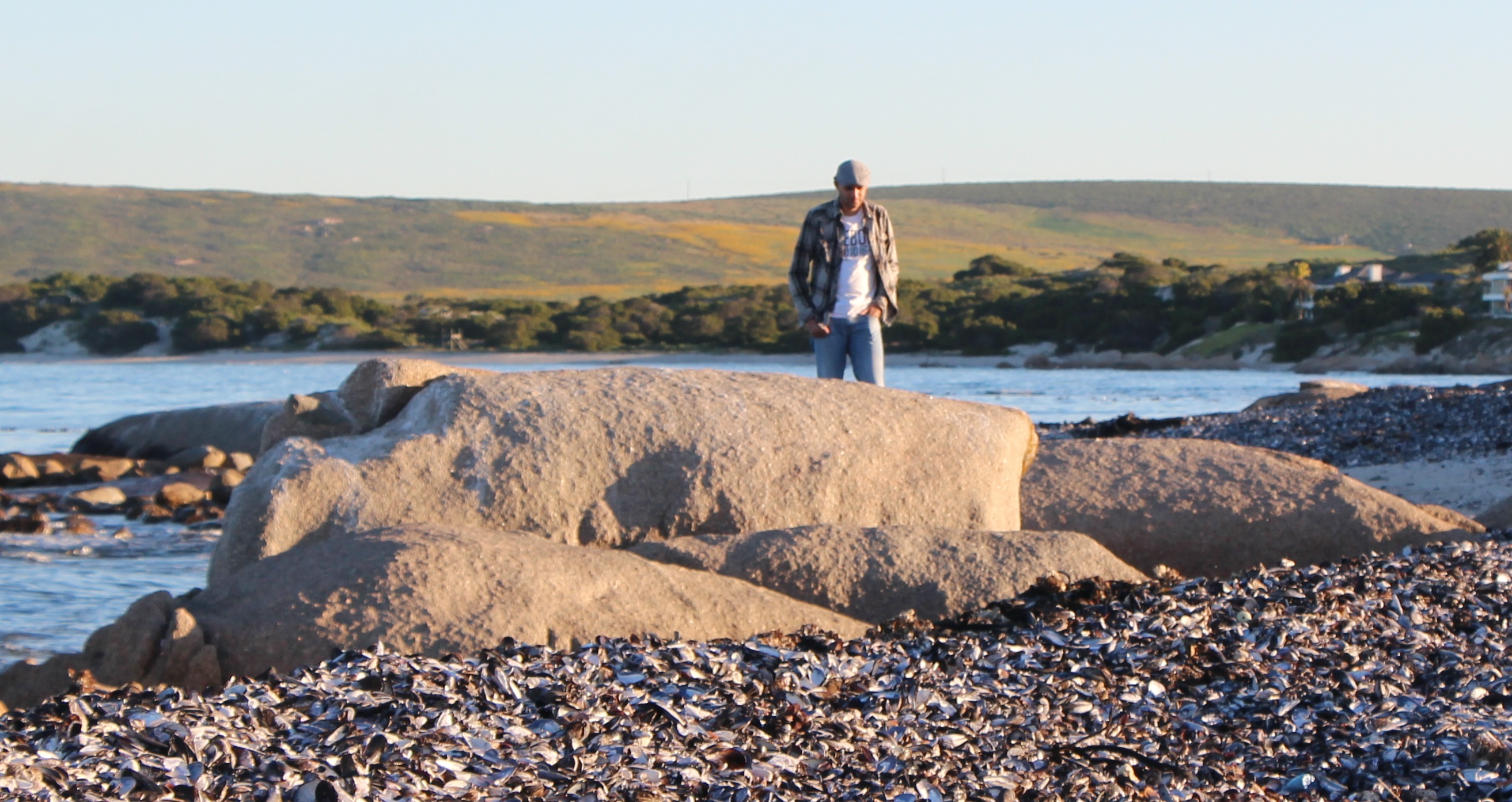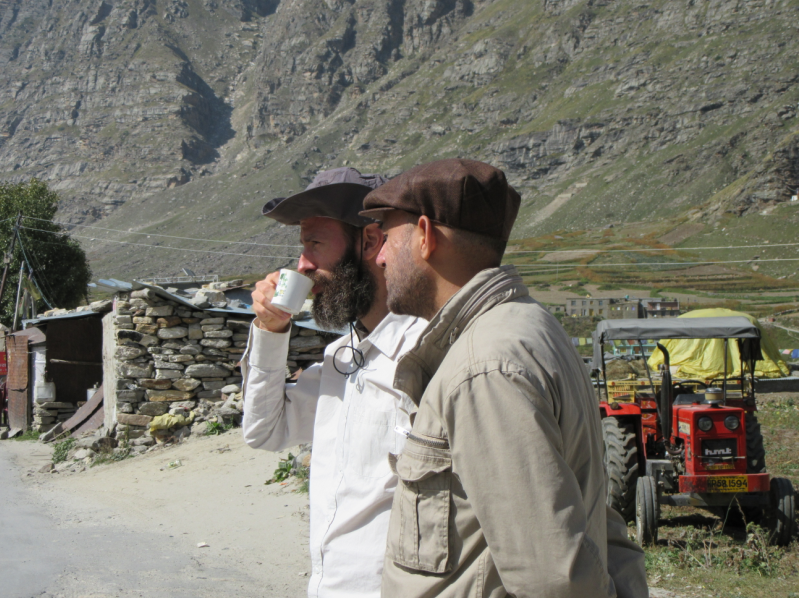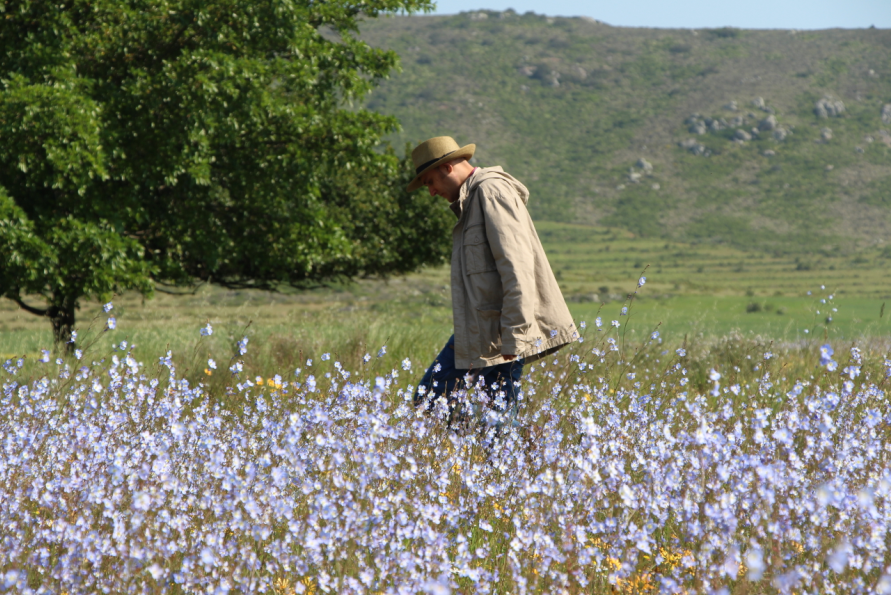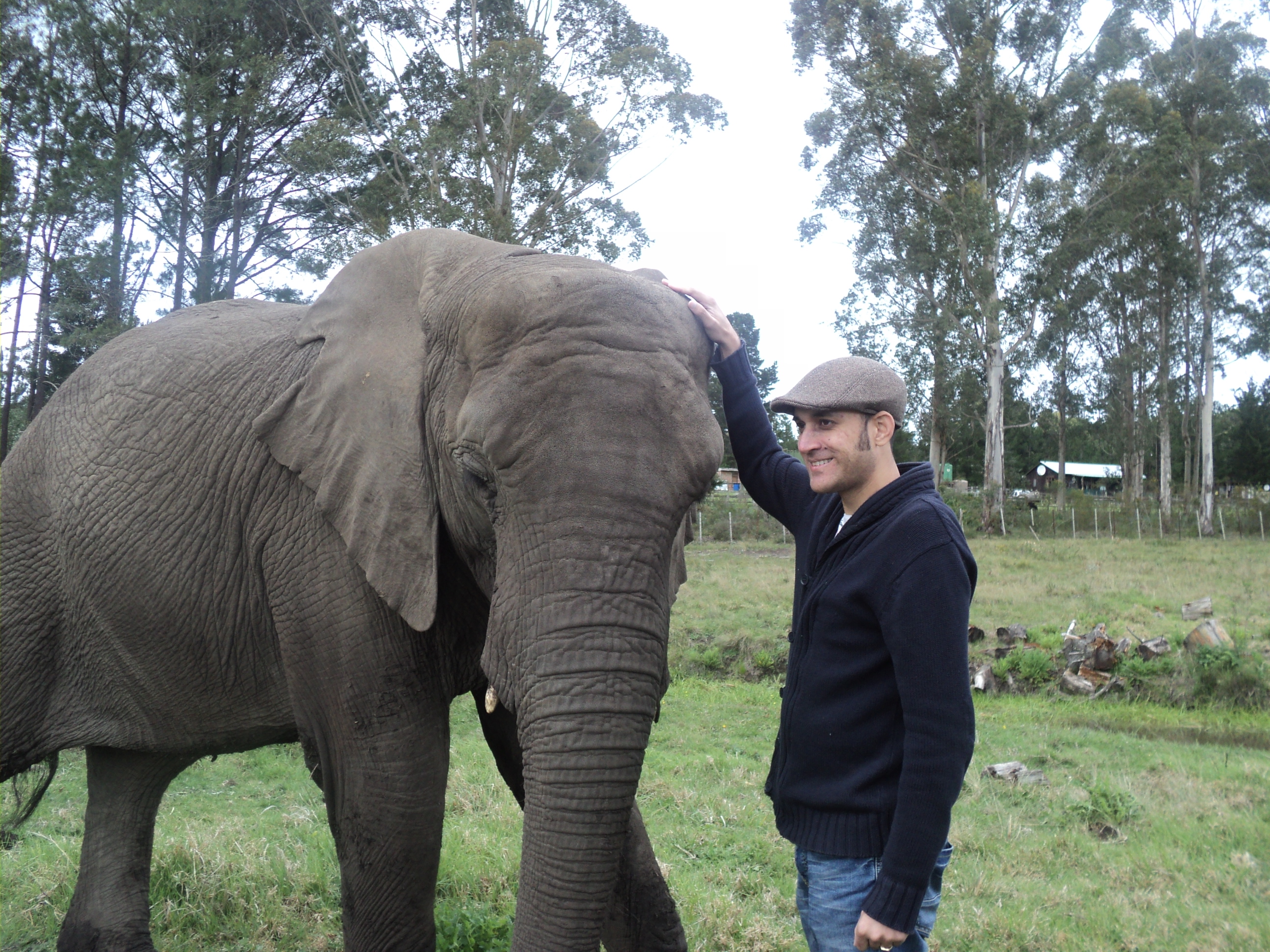Fin Manjoo is a South African filmmaker and writer. After graduating with an Honours Degree in Film Studies, Fin lived in different countries around the globe, gaining life experiences and deepening his understanding of the world. In summer 2017, Fin completed his debut film Woodwind.
Woodwind is a story about a young South American composer Bonifaz who travels to India to search for the truth behind a poetic vision, written to him by a female painter. On his mysterious journey to discover the source of his music inspiration, Bonifaz learns the age-old secrets of the power of sound in tune with the magic of real nature. Fin’s main intention is to create deep, thought-provoking films.
Magazine MN caught up with Fin to talk about his life journey and discuss the theme of nature since, according to Fin, the power of nature is one of the most important subjects in Woodwind.

Magazine MN: Fin, tell us a bit about yourself. How did you discover your passion for filmmaking? Was there any particular event or person that helped you realize that you should pursue a career in film?
Fin: There is a very high percentage of people out there who want to create films. We love to dream, laying down on our soft pillow and cuddled in our beloved blanket. So, we imagine it’s a better job being in films than packing hundreds of boxes each day. However, when you’re on the box you realize that 2000 watt lights in your face and swimming in the mud to make it real is not as comfortable as your bed. You got to love the mud. What’s in those boxes? That’s where our imagination comes in. That’s how I knew it was for me. And, when I was a child, I remember sitting in the back of my parent’s car, looking out the window. To me, the windows were like film frames and it looked like the motion pictures drove by. And then, when you see beyond the tunnel vision, you dream up your own pictures.
Magazine MN: What movies have had the biggest impact on you, and why?
Fin: There were hundreds of films, but let’s name two filmmakers from each - foreign and English language cinema - who had the biggest impact on me: Andrei Tarkovsky and Ingmar Bergman, Stanley Kubrick and Terrence Malick.
Magazine MN: What is your philosophy in life that influences your creative work?
Fin: It’s interesting you ask about philosophy. When I was a teenager, one of the options I thought about was to be a philosopher. Back then, I was fascinated by Plato’s “The Republic”. In that same book, Aristophanes’ fantastic account of the essence of souls made an important impression on me and influenced most of my art work and personal life, though there are other references to this similar theory that had since shaped my thinking.
Magazine MN: You lived in many countries. How has travel affected your life and personality?
Fin: Not counting the places I’ve just visited, I’ve lived in England, Austria, the United States, Bosnia and South Africa. That’s not an achievement. What is different about the way I do it is that I don’t look at those places as holiday destinations – I go there to learn from other people, their arts, cultures and share ideas. Living this way was extremely risky when I was in my 20s, because I have always had to restart when moving to a new place and country. I’ve bought many irons in my life, but don’t collect them. I collect invaluable experiences to grow from inside. From an artistic point of view, particularly the research on Woodwind, my time in Vienna was the most important, and on a personal level my time in Bosnia was crucial.
Magazine MN: Your life and music research in Vienna, Austria’s capital, is the groundwork for your debut film Woodwind. Do you agree that there is a lot in common between you and the film’s main character Bonifaz? What are these things?
Fin: Yes, since I wrote the screenplay this is not surprising. It is fiction, the events in the movie didn’t occur in real life, but you have to fill the characters with a spirit and this is real. When you collaborate with all other art departments to take it up to a level as we have, you need each person to add multiple dimensions to the character, as long as they are consistent with my original vision.
So, I’ve had to allow actor Leandro Taub to also interpret Bonifaz and wield his magic to feel this spirit, and then I could direct him how to breathe, so to speak.

Lead actor Leandro Taub and director Fin Manjoo at the Himalayas
Another important artist in fashioning Bonifaz was the composer of the soundtrack, Stefan Fraunberger. Though I know that he was more instrumental in representing a different character in the story, than Bonifaz. Nevertheless, Fraunberger and I shared some of the same feelings and experiences that reflect the themes of Woodwind. You will have to see the film first before I give you the exact details.
MagazineMN: The story of Woodwind emphasizes the importance of connections between people. What about the theme of “connecting people to nature”? How did reconnecting with nature impact the life of the main character? In your opinion, what can the story of Bonifaz teach us about our relationship with nature and the world around us?
Fin: In Woodwind, we learn that the seeing, hearing and other senses of ancients were much more powerful. As we are lost in our machines, our senses are becoming weaker.
Of course, the character in the film, Bonifaz, is concerned with his sense of hearing because he is a musician, and we experience his exploration and discovery through the sounds of nature. Beyond the five senses, we are also able to connect ourselves to higher states of being. The powerful sights and sounds of nature can heal us and enable us to tap into this ability.
Without going into the technical details, as a composer, Bonifaz learns from this power how to utilize these techniques of nature in his own music. Bonifaz realizes that this was how we were supposed to create art in the first place. Now, you could either achieve this purely by spending time in the wild, of course without taking your cellular phone with you. Or, an artist can channel this power into his music or film, and then the art is used as a medium to tap into the state, or to give us a heightened feeling tending toward it.
When you leave the theatre or concert hall after being exposed to an enlightened work, your senses are on a high and you feel as if you’ve just walked through the Amazon jungle. It’s not surprising that Woodwind is set in the untamed Indian jungles, in the Woods, through the most holy rivers, amid waterfalls and the highest mountain range in the world.
In an attempt to move away from the technological hold on our psyche, the story is set in one of the oldest cities in our civilization Varanasi and Bonifaz has to “retune himself” to tune into a new ‘voice’.
The power of Mother Nature is in her aesthetics, which influences us in such a way that no matter how lost in the machine world we are, nature is there to heal and bring us back to our roots.

Magazine MN: What does nature mean to you? Do you feel inspiration when you spend time in nature?
Fin: Continuing from what I said above, there’s a reason why certain fountains of water are for beauty and youth. I laughed at the idea when I found such a spring while living in Bosnia. But the waters there are so pure that I can see my toe nails from above the surface and deep into the water. You can drink this water.
In Cape Town, there was a shortage of rain last summer, and many more people are driving to the mountain springs where there’s endless pure water that’s healing for our bodies. Compare that to the chemically treated water in our taps that are harmful to us. This same problem we find in food production and I’m a believer in organic farming, which I’ve learnt first-hand from my wife’s family farm in Bosnia.
This region has the highest density of woods in the whole of Europe and it’s quite inspiring for me to immerse myself in those parts. The first time I flew over Bosnia on a plane, I just saw endless rows of hills filled with trees. It’s ironic that I’m from Africa and I was astonished by this because you can’t even see the hillsides - all you see is trees everywhere.
For me, this was a dream of going back to my roots, these are the places of my dreams. And I always measure a place by the nature (not the people or buildings). That is why I’m in Cape Town – because of the incredible landscapes between two oceans and the Table Mountain range.
Going back to the early stages of my research into the Woodwind story, back in Vienna I’d spend time outside the city in the forests. I read that Beethoven used to do this to find inspiration for his compositions and from here he literally composed the Sixth Symphony with the sounds of nature and the creatures around there.
By comparing my own personal love for nature and Beethoven’s method of brainstorming his art, this was probably the starting point for me to merge art and nature. Though, you can’t credit Beethoven for our natural instinct. In Africa, from an early age I’d love walking through the subtropical jungle when I was back in Durban, and I still fantasize about my childhood.

Magazine MN: Woodwind can also be called a story of coincidences. Do you believe that coincidences are actually the signs from the Universe or Fate? How did you come to this conclusion?
Fin: This is one of the big questions that the viewer must ask. In our everyday lives there are many coincidences that are mere coincidences, where we read into them what we want. Everywhere we look there are millions of details shouting all around us, and it’s the one we want to place attention to that rises to the surface. Despite this methodology, I do believe that certain signs, when they fall to us in a certain way, particularly repeated signs which form startling patterns from our lives, these make my hair rise on ends, and mean that there is no coincidence. They mean that you’re at the right place at the right time, and sometimes with the right person.
Fin Manjoo was interviewed by Natalie Myhalnytska
You will find Woodwind official trailer here
For more details about Woodwind, check out Fin Manjoo website
